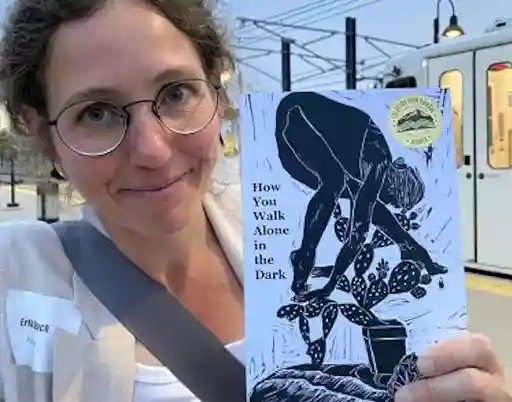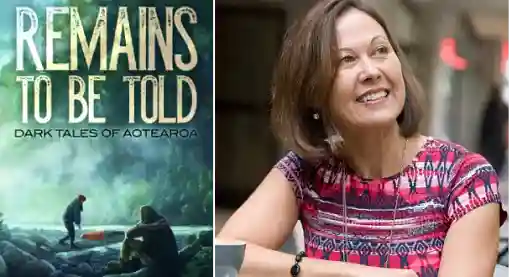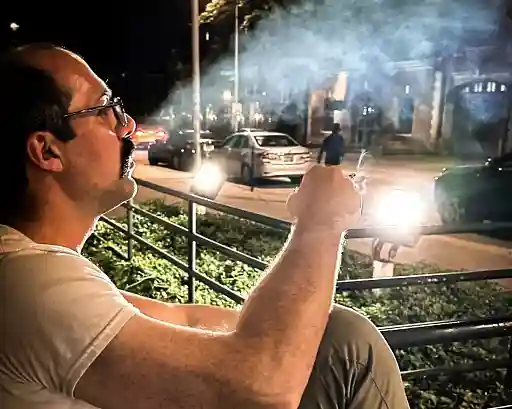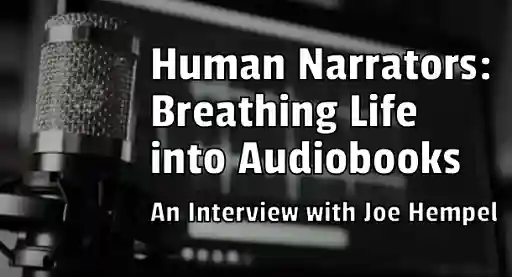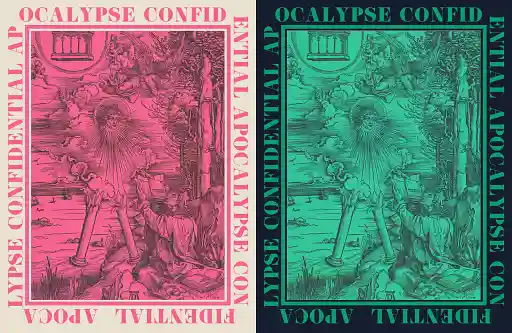Bio: Mark Gottlieb has ranked #1 among Agents on Publishers Marketplace in Overall Deals and other individual categories. Using that same initiative and insight for identifying talented writers, he is actively building his own client list of authors. Mark is excited to work directly with authors, helping to manage and grow their careers with all of the unique resources that are available at book publishing’s leading literary agency, Trident Media Group. Since his time at Trident, he has represented numerous New York Times bestselling, as well as award-winning authors, and has optioned and sold numerous books to TV and film production companies. Mark is actively seeking submissions in all categories and genres.
Let’s start with an easy one. How did you originally get started as a literary agent? When did you know that you wanted to make a career out of it?
I knew from a very young age that I wanted to go into book publishing, since it happens to be my family business. For a lot of others in book publishing, it's a different experience, though, since book publishing is known as an "accidental" profession where people tend to stumble into it from the humanities. I was born into this and groomed for it.
Did you ever take a crack at writing? Or was repping writers always what interested you?
As a part of my degree from Emerson College, we had to take creative writing classes. The degree was called Writing, Literature and Publishing, so they asked that we fulfill every aspect of the degree name. I also used to write album and concert reviews for a music blog akin to Pitchfork and Brooklyn Vegan, called Junk Media. It got me into all the shows for free. Nowadays, most of my time is taken up with writing editorial letters and emails.
To give our readers a little insight into what an agent does, can you dig in to what your day-to-day is like? For instance, what did you get done/get going this week?
There's a difference to what a literary agent does in their essence, versus what the day-to-day looks like. To give a window into a day, my Tuesday was comprised of books publishing (most publishers select Tuesday as publication days), I conducted a couple submissions on behalf of clients to various editors at different publishing houses, and I began negotiating an offer I received for a submission that had been out with editors for a couple of weeks.
I'm sure it's a ton of constant juggling and monitoring of the pipeline. How many various irons in the fire do you have right now?
There must always be many irons in the fire in order for something to really spark and catch fire. It's one of the reasons I keep a big client list and do a large volume of deals across various aspects of the book world. I wouldn't be put off by a big client list, though, since some authors will only write one book their entire lives, while others might write a book a year or a book every ten years.
Let's talk about that a little. What are the most important elements you look at when considering taking on an author? Platform? Sales potential? How do you determine an author is going to be a success before they're actually a success?
Evaluating an author is different when it comes to fiction and non-fiction. In fiction, I tend to look for quality writing first and foremost. The author will become a household name by extension of that. Secondly, I look for the hook in what makes the story appealing, rather than merely a well-written novel where nothing actually takes place other than people on the beach drinking white wine. Awards, nominations, publications in literary magazines, advance praise, etc. can all help in terms of showing relevant writing experience, credentials, and a community built around a fiction author, but at the end of the day it's about quality writing. For non-fiction, I focus primarily on the author's platform; looking at what their social media reach is in terms of number of followers and engagement with their followers, website visits, newsletter subscription rates, etc. While non-fiction is more idea-driven, the quality of the writing tends to take more of a backseat to the subject matter and who the author is and how they will reach their built-in readership. When I start to see some of those items in place, I get a better sense of how successful a book might be.
What is the dream project you’re hoping to see come across your desk? Give me both a fiction and non-fiction project, if you can.
In terms of fiction, I've been focusing most of my efforts in attaining upmarket fiction, which is the crossroads of where literary meets commercial fiction. I also look for books that elevate and transcend a given genre, such as literary science-fiction, literary fantasy or literary mystery/crime/thriller. Examples of such books I have worked on are Kate Moretti's The Blackbird Season, Christopher Brown's Tropic of Kansas, and Deborah A. Wolf's The Dragon's Legacy. I also like to work with books that carry an important social message.
In terms of nonfiction, I tend to look for celebrity memoir or those with massive social media followings (1M+) or big platforms. Much of the nonfiction I do has an important social message and in many cases has been born out of fiction, in a sense. For instance, social media phenomenon James Breakwell's Only Dead on the Inside: A Parent's Guide to Surviving the Zombie Apocalypse, is hardly non-fiction and yet it tends to be shelved in the non-fiction/humor section. In terms of an important social message in nonfiction, I represented Ruby Karp's Earth Hates Me: True Confessions From A Teenage Girl, which addresses many of the issues associated with being a teen in today's digital world, with some life lessons from an actual teen.
I saw you recently signed Michael Seidlinger. Laughter of Strangers was amazing. Any preview you can give us on what you two are cooking up?
We are currently out on submission to editors with prominent literary figure, social media influencer and Asian-American author and publisher of multiple books and articles of note, Michael J Seidlinger’s Follow Me: A Road Trip Through The Psyche of Self and the Way We Live Now, a chronicle of social media’s effect on an individual that lives by it, as fully exposed through a one month, 6,175.9 mile road trip-as-per formative-experiment across America investigating the reliance by mapping it both geographically and psychologically, fueled by the cues and consideration of a public figure’s followers and readership.
Oh shit! I remember him doing this! I even told him he could use my place in KC if he came though.
I think it's a really interesting idea. It sort of reminds me of how Art Garfunkel walked across America on foot, just because. Or it reminded me of the film Nerve (2016), starring Emma Roberts and Dave Franco. It's a techno-thriller-adventure about a social media app that dares its users to do ridiculous and often dangerous things for money.
Way ahead of you, sir. My lady and I watched Nerve a few months ago. Loved it. We got on a real Emma Roberts kick after watching Scream Queens.
Yes, I did the exact same thing!
Was there ever an instance where you read what you considered to be a perfect book but just couldn’t get it to work from the publishing/sales side of things?
I've had instances where a book I was expecting to be a rather quiet publication surprised me and the reverse, which is what you describe in your question, where there was a book that never lived up to its expectations. Some of it can have something to do with forces outside of our control. For instance, Donald Trump has a tendency to suck up all the oxygen in the room. If his shadow happens to be taking up the news the day your book publishes, it could be dead in the water. We live in a crazy world as a result of many of the things that come out of his mouth. Conversely, we happened to be on submission with Christopher Brown's literary science-fiction novel Tropic of Kansas, a retro-futuristic examination of how surveillance capitalism lays the groundwork for a surveillance state and corporate culture produces dictator culture, when Trump suddenly showed up on the campaign trail. In that instance, the timing couldn't have been better.
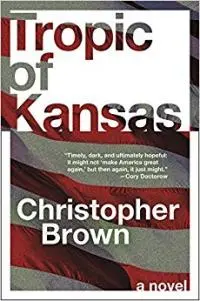 Yeah, I can totally see how whatever's trending that particular day could either screw you over or make you the prom queen. That's nuts considering most of these projects are in development for many years sometimes.
Yeah, I can totally see how whatever's trending that particular day could either screw you over or make you the prom queen. That's nuts considering most of these projects are in development for many years sometimes.
Well, yes, on the surface, but other times it can be more nuanced than that. Pricing and Amazon also has a lot to do with it.
In the wake of Harvey Weinstein and Kevin Spacey, we’re now seeing various careers swiftly taken down due to past transgressions. How does something like that factor in when deciding to sign a client? Are you now more cognizant of an author’s reputation in addition to their credentials?
I would not work with someone who had a prior history of sexual harassment. The same would go for any deeply deplorable quality in a person. No matter how much money, it's just not worth my reputation. For instance, our literary agency had a chance to represent Michael Jackson for his memoir and we turned the project down due to all of the accusations of child abuse/sexual molestation against him.
So is it now standard for agents, in general, to look into a potential client's history? Perhaps even going as far as to do a criminal background check to make sure all the bases are covered? Just seems like these days you can't be too careful, especially in business.
In evaluating any writer under consideration to be a client, I tend to read about them online first. That's just a part of doing one's own research on an author's potential. Doing a criminal background check would just be laughable, but if something deeply troubling came up, I'd likely avoid working with that person. My reputation in business, like my health in life, is all that I have.
You’re probably going to get some writers from the site reaching out to you after this goes live. We already know what you’re wanting to see. Now what are you definitely NOT wanting to see?
I am not looking to represent writers who prefer to write within struggling genres of fiction. For instance, horror, urban fantasy, paranormal romance, new adult and inspirational are categories I tend to steer away from in fiction. I am only looking for romance novels when an author has a proven track record as a bestseller in that category. With non-fiction, just about anything goes so long as the author has a huge platform. In terms of children's books, I have been focusing more of my list on middle grade fiction and graphic novels, but I do the occasional young adult book and I'd be open to an author-illustrator of a children's picture book, were they to have some awards or notoriety to their name. I also tend to avoid early reader books and chapter books in children's fiction. No poetry, even though it's dear to my heart.
We have a lot of writers on the site that do short stories so they can get peer feedback and critiques in our workshop. For years I've always heard agents say "short story collections don't sell." That is, unless you're an established name already. I know for sure short stories are a great way to beef up a writer's resume, but what's your take on collections? Is it true that short story collections don't sell?
Sometimes short story collections can work when they're more of a "novel in stories" with a common theme and/or narrative thread. Otherwise, I have to agree that it's difficult to do short story collections from a newer, less established name. I think short stories are good, though, because they can often go on to be expanded into full-length novels and they sometimes work well in collections. Short stories can also grow in value in an author's writing desk when they one day become a big household name.
That's super encouraging, man. I think a lot of readers are going to be happy to hear that. Let’s move on to rapid fire. First, what are you currently Netflixing?
Breaking Bad (I guess you could call me a late bloomer) and Stranger Things 2.
Favorite adult beverage?
Coconut water right out of a young Thai coconut.
Marvel or DC?
In terms of D.C. Comics, Frank Miller's The Dark Knight Returns, Alan Moore and Dave Gibbons's Watchmen, and Alan Moore and David Lloyd's V For Vendetta.
iPhone or Android?
iPhone. I like the closed system because it's safer and the aesthetic of Apple appeals to the artistic side of users.
And finally, if you weren’t in the publishing industry, what would you be doing?
If you asked me what I would be doing before I even tried my hand at book publishing, I might be a photographer or a chef. Since you asked me after I've been in book publishing, there's really no other way to live.

